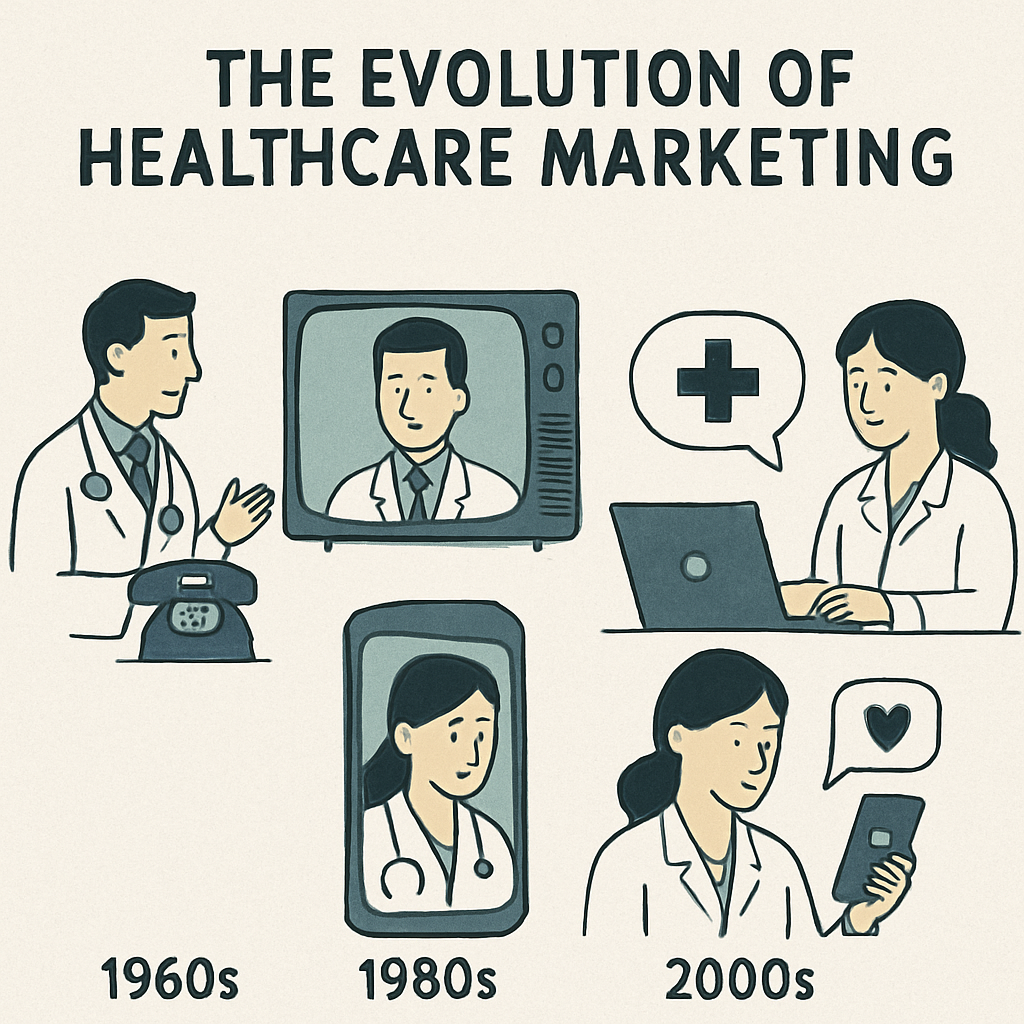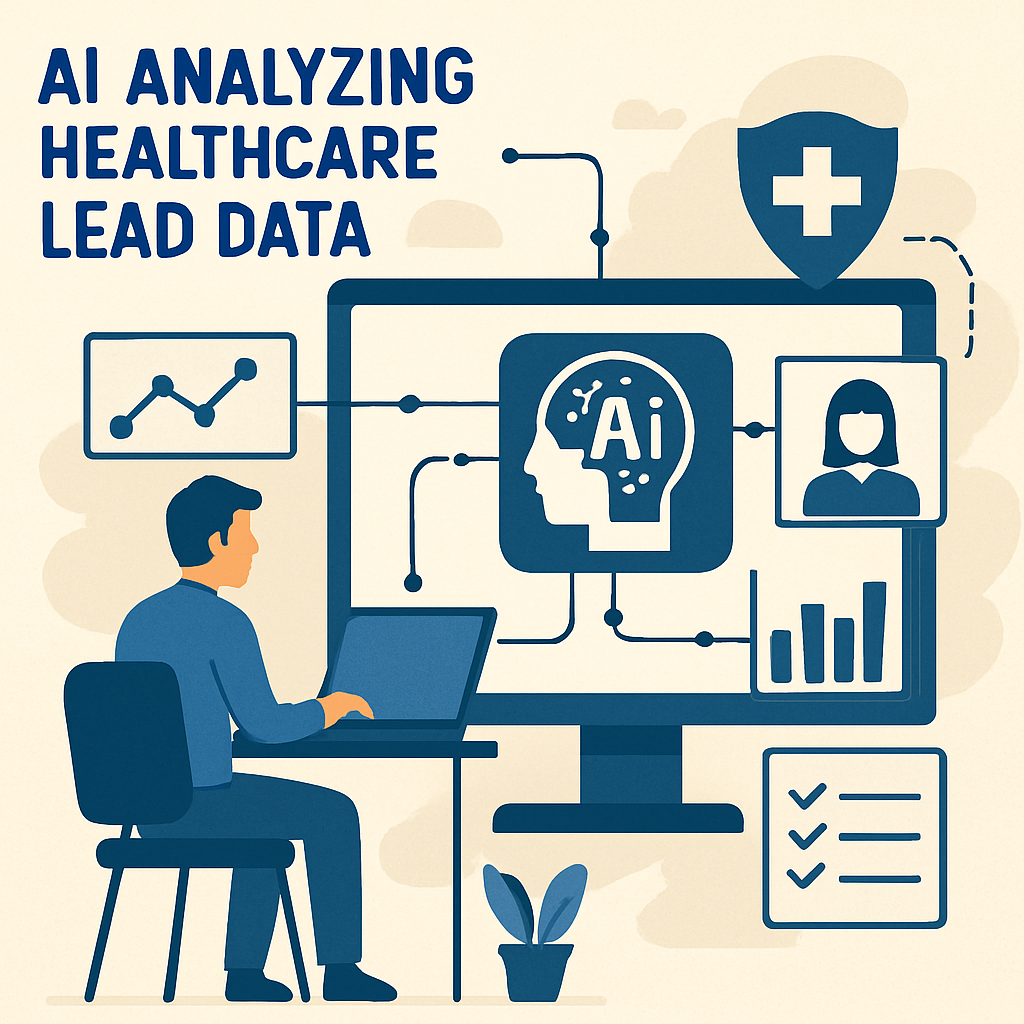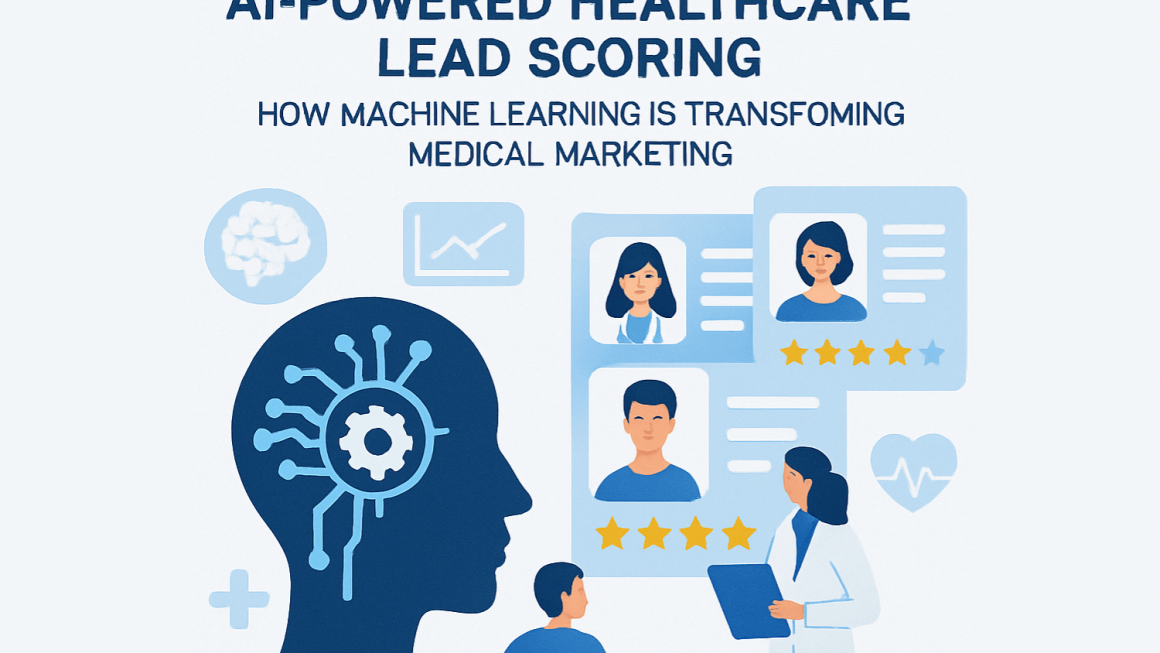In the fast-paced world of healthcare marketing, staying ahead is crucial. AI-powered lead scoring is revolutionizing how we approach this challenge. Machine learning is at the heart of this transformation, offering new ways to engage with potential patients and healthcare professionals.
Healthcare Email Lists are no longer just static databases. They are dynamic tools that, when combined with AI, can drive targeted marketing strategies. AI can sift through vast amounts of data, identifying patterns and trends that were previously hidden.
This technology allows for better patient segmentation. By analyzing demographics, behavior, and medical history, AI can categorize patients more effectively. This means more personalized and relevant marketing efforts.
Healthcare executives also benefit from AI-driven insights. By targeting specific segments within healthcare executives email lists, marketers can enhance their outreach efforts. AI helps in identifying high-value leads, ensuring resources are allocated efficiently.
The integration of AI in healthcare marketing is not just about efficiency. It’s about improving patient outcomes and satisfaction. As we delve deeper into AI-powered analytics, the potential for innovation in medical marketing is immense.
The Evolution of Healthcare Marketing: From Lists to AI
Healthcare marketing has seen many changes over the years. Initially, static mailing lists were the norm. These lists served their purpose but had limitations. They offered little flexibility and poor targeting capabilities.
With the introduction of digital technology, things began to shift. Digital databases allowed for easier updates and management. Yet, they still lacked advanced analytical capabilities. As a result, marketers were limited in their ability to segment and target effectively.
Enter Artificial Intelligence and Machine Learning. These technologies have transformed the landscape. Now, healthcare marketing is more dynamic and data-driven. AI enables marketers to go beyond traditional approaches.
Here’s how AI is redefining healthcare marketing:
- Enhanced data analysis and lead scoring.
- More precise patient segmentation based on data.
- Automated processes for list updates and management.
AI’s role in healthcare marketing is significant. It provides deeper insights and improved targeting. The power to transform static lists into actionable data is a game-changer. With AI, healthcare marketers can achieve more personalized and impactful strategies.

What is AI-Powered Lead Scoring in Healthcare?
AI-powered lead scoring is revolutionizing healthcare marketing. This method uses machine learning algorithms. These algorithms evaluate and prioritize leads by their conversion likelihood. The result is a more targeted approach to marketing efforts.
Machine learning models analyze vast datasets. These can include patient demographics, behavior, and engagement history. Based on this data, AI assigns scores to each lead. Higher scores indicate higher chances of conversion.
The benefits of AI-powered lead scoring in healthcare include:
- Improved prediction of patient needs and preferences.
- Enhanced ability to prioritize high-value leads.
- Reduced manual errors and increased efficiency in lead management.
Healthcare organizations can leverage AI to drive more precise marketing strategies. By knowing which leads are most promising, resources can be allocated effectively. This increases the return on marketing investments and improves campaign outcomes.
AI technologies transform how healthcare marketers approach lead scoring. They turn complex data into actionable insights. These insights enable more informed decision-making and strategic planning.

How Machine Learning Enhances Healthcare Email Lists
Machine learning brings a transformative approach to healthcare email lists. It sifts through vast volumes of data quickly. This uncovers patterns and trends that humans might miss. By harnessing machine learning, marketers can refine their strategies.
AI algorithms categorize patients more effectively. They analyze data from demographics to past interactions. This leads to more precise patient targeting. When marketers understand their audience, they can craft relevant messages.
Key enhancements made by machine learning include:
- Identification of high-potential leads in email lists.
- More accurate patient segmentation strategies.
- Automated updates to ensure data freshness and accuracy.
Machine learning also predicts which messages resonate with specific groups. This ensures communication is both timely and effective. Personalized marketing campaigns can increase engagement rates.
For healthcare marketers, maintaining accurate email lists is vital. Machine learning automates the tedious task of keeping data current. This not only saves time but also reduces the risk of human error.
Incorporating AI into email strategies enhances both efficiency and effectiveness. Marketers can focus on crafting engaging content. Meanwhile, AI handles data analysis and management, leading to improved outcomes.
Leveraging AI for Advanced Patient Segmentation
AI has revolutionized the way healthcare marketers segment patients. It has provided new tools for precision and efficiency. AI-driven analytics delve into complex datasets. They reveal insights that were once hidden.
With AI, patient segmentation becomes more detailed. AI systems assess factors such as medical history and engagement levels. These factors help in tailoring marketing strategies. The more specific the segmentation, the more effective the communication.
Key benefits of AI in patient segmentation include:
- Improved targeting through detailed data analysis.
- Enhanced ability to predict patient preferences.
- Automated adjustments in segment classifications based on new data.
AI makes it possible to adapt strategies in real-time. Segments evolve as new data becomes available. This dynamic approach keeps marketing efforts relevant and current.
Patient needs vary widely, and AI supports personalized care. Tailored communication increases patient satisfaction and outcomes. AI tools allow marketers to address individual needs with precision.
Utilizing AI in segmentation gives healthcare marketers a significant edge. The integration of technology into marketing strategies is now essential. It transforms how patients are understood and engaged.
Optimizing Healthcare Mailing Lists with AI Analytics
AI analytics offers new potential for optimizing healthcare mailing lists. These tools are invaluable for modern medical marketing. They provide insights that were previously challenging to obtain.
AI-powered tools streamline the management of mailing lists. They automatically update contact details and remove inactive addresses. This process ensures the lists remain accurate and effective.
Some key optimization benefits of AI for mailing lists include:
- Enhanced data accuracy through real-time updates.
- Increased engagement by targeting active contacts.
- Reduced costs by eliminating inefficiencies and redundancies.
With AI, marketers identify high-potential leads with ease. AI assesses user behavior to anticipate interests and engagement. This understanding helps direct focus towards valuable segments.
Effective use of AI analytics boosts interaction rates. It helps tailor content to align with audience preferences. As a result, the overall performance of campaigns improves significantly.
AI-driven analytics support continuous monitoring and improvement. They offer real-time data that marketers can act upon quickly. This ability to adapt leads to more successful outcomes.
Targeting Healthcare Executives: Smarter Segmentation and Personalization
Reaching healthcare executives requires a strategic approach. These individuals play critical roles in decision-making. Thus, targeting them with precision enhances marketing success.
AI tools offer smarter segmentation of healthcare executives. By analyzing data, AI identifies key attributes that define valuable contacts. This method allows for refined targeting strategies.
Key factors AI considers include:
- Professional roles within the organization.
- Influence levels in industry decisions.
- Preferences and past engagement behaviors.
AI-powered personalization goes beyond basic demographics. It delivers tailored content that aligns with executives’ specific interests. This level of personalization fosters deeper engagement.
The ability to craft relevant messages is invaluable. Executives are more likely to respond to content that speaks directly to their needs. AI ensures these communications are timely and pertinent.
Leveraging AI in targeting strategies maximizes the impact of marketing campaigns. It leads to better alignment between the message and the recipient. As a result, the likelihood of converting executives into partners improves.
Predictive Analytics: Anticipating Patient and Professional Needs
Predictive analytics is reshaping how healthcare marketers understand their audience. With machine learning, it’s possible to foresee patient and professional needs accurately. This foresight enables preemptive action in marketing efforts.
AI models use historical data to predict future trends. They analyze numerous variables to identify potential patient needs and preferences. This analysis results in more targeted marketing strategies.
Key predictions made by AI include:
- Identifying service trends and demands.
- Anticipating healthcare needs based on demographics.
- Forecasting patient follow-up requirements.
For healthcare professionals, understanding future resource needs is critical. Predictive analytics can suggest when and where these needs will arise. Thus, improving allocation and reducing waste.
Marketers benefit from knowing these patterns in advance. By leveraging this data, they can craft campaigns that address upcoming demands. This proactive approach enhances patient satisfaction and loyalty.
In the ever-evolving healthcare sector, anticipating needs gives a significant edge. It ensures that patients and professionals feel understood and valued. Predictive analytics bridges this gap effectively.
Compliance, Privacy, and Data Security in AI-Driven Marketing
AI-driven marketing in healthcare must adhere to strict regulations. Ensuring data privacy and security is paramount. This involves handling sensitive patient and professional information with care.
Healthcare marketers need to be aware of laws like HIPAA. These regulations dictate how personal data is stored and used. Non-compliance can lead to severe penalties.
To maintain trust and ensure compliance:
- Encrypt all sensitive data effectively.
- Implement robust data access controls.
- Regularly update security protocols.
Transparency is crucial for fostering patient trust. Inform patients on how their data is collected and used. Offering opt-out options further enhances transparency.
Implementing AI does not exempt marketers from being compliant. AI systems can even bolster compliance efforts by identifying risk areas. They automate processes like data encryption and monitor unusual patterns.
Security is ongoing, not a one-time task. Continuous monitoring and updating are vital. This vigilance protects both patient information and the organization’s reputation.
Real-World Success Stories: AI in Healthcare Marketing
AI is revolutionizing healthcare marketing with impressive success stories. Many healthcare organizations leverage AI to maximize marketing efficiency and patient engagement.
For instance, a leading hospital used AI to improve patient outreach. By analyzing patient behavior, they tailored communications effectively. This led to a 30% increase in patient appointments.
Another organization utilized AI for better targeting. By refining their healthcare mailing list, they reached high-value leads, resulting in improved conversion rates. Data-driven insights helped them focus resources strategically.
Key success factors included:
- Personalized patient communication strategies.
- Proactive lead nurturing approaches.
- Efficient segmentation of healthcare professionals.
An AI company helped a healthcare provider optimize their email campaigns. The provider achieved significant engagement growth by predicting patient preferences accurately. This demonstrated AI’s potential in transforming marketing approaches.
AI continues to drive innovation in healthcare marketing. Organizations embracing AI insights are setting new benchmarks for success. They effectively engage patients and professionals with precision.
Best Practices for Implementing AI in Healthcare Lead Scoring
Implementing AI in healthcare lead scoring requires careful planning. Success hinges on several best practices that optimize outcomes and efficiency.
Firstly, invest in high-quality data. Reliable data sources are critical for accurate AI-powered insights. Ensure your healthcare mailing list is updated and comprehensive to improve lead targeting.
Additionally, integrating AI tools with existing CRM systems enhances data-driven decision-making. This allows for seamless workflows and better management of healthcare email lists. Maintaining system compatibility is crucial.
Moreover, continuous learning and adaptation are essential. Machine learning models evolve through regular updates and feedback integration. Ensure your team is trained to leverage AI tools effectively for ongoing improvement.
Key best practices include:
- Regularly update and verify data accuracy.
- Train staff in AI technologies and data analytics.
- Monitor AI performance and make necessary adjustments.
Incorporating these practices helps harness AI’s power effectively. It facilitates smarter marketing decisions, optimizing both resources and engagement.
The Future of Healthcare Email Lists: Trends and Innovations
The landscape of healthcare email lists is rapidly evolving. As technology advances, new trends emerge, reshaping marketing strategies. AI and machine learning are at the forefront, driving innovation.
Predictive analytics is a key trend. It anticipates patient needs and behaviors, refining email targeting. By utilizing data-driven insights, marketers can create personalized and effective campaigns.
Automation is another pivotal innovation. AI automates routine tasks like data updates, ensuring precise and current healthcare email lists. This leads to better resource allocation and improved marketing efficiency.
Emerging trends and innovations to watch include:
- The rise of hyper-personalized email content.
- Increased focus on ethical data usage and privacy.
- Greater integration of AI with marketing platforms.
These trends herald an exciting future. They promise more precise targeting, better engagement, and significant growth opportunities in healthcare marketing.
Conclusion: Embracing AI for Smarter Medical Marketing
AI-powered tools are transforming medical marketing. They offer insights and precision that were previously unattainable.
By leveraging AI, healthcare marketers can refine targeting strategies. This results in more effective campaigns and improved patient engagement. Adopting AI is not just an option, but a necessity. It paves the way for smarter, more efficient healthcare marketing.




